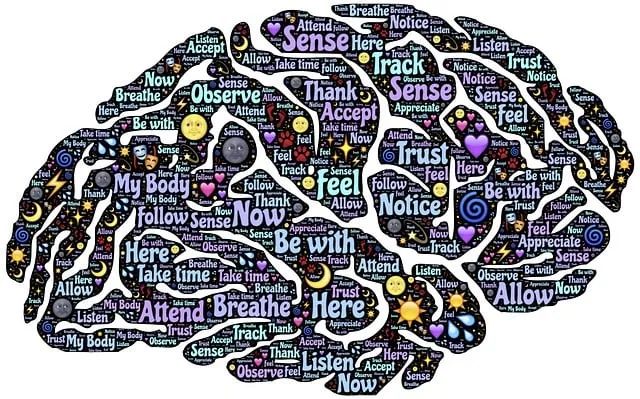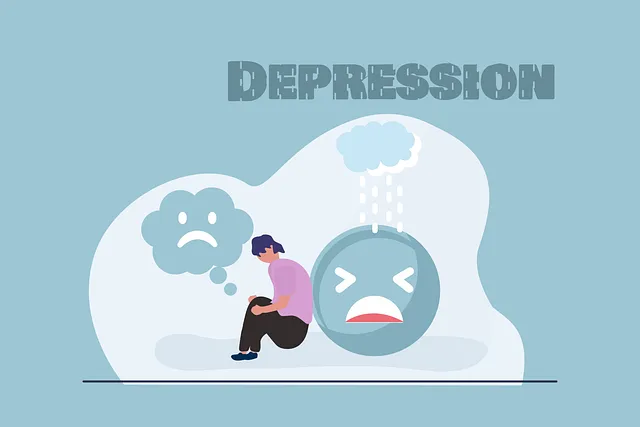The pervasive stigma around mental illness prevents many from seeking help. Organizations like Kaiser Permanente combat this through accessible support services, such as their psychiatry phone line in Golden, encouraging individuals to take the first step towards healing. By offering mindfulness meditation, trauma support, and holistic care that prioritizes emotional intelligence, they foster a supportive environment where mental health is discussed openly. Community engagement, education, and initiatives like workshops further reduce stigma, normalizing mental health conversations. Many have successfully overcome mental illness with such resources, inspiring others to reach out for help and achieve recovery.
Mental illness stigma remains a significant barrier to seeking help, yet efforts to reduce it are gaining momentum. This article explores various facets of this complex issue, from understanding the profound impact of stigma on mental health to highlighting progressive initiatives like those seen at Kaiser Permanente, which challenges stigma through innovative programs. We delve into effective strategies for healthcare providers and the transformative power of community engagement and education. Success stories of individuals overcoming stigma offer hope and inspiration, reminding us that support is available, as evidenced by resources like the Kaiser Permanente psychiatry phone number in Golden.
- Understanding Stigma: Its Impact on Mental Health Seeking
- Kaiser Permanente's Role in Challenging Stigma
- Effective Strategies for Reducing Stigma in Healthcare Settings
- Community Engagement and Education: A Powerful Tool
- Success Stories: Overcoming Stigma and Embracing Support
Understanding Stigma: Its Impact on Mental Health Seeking

Stigma surrounding mental illness is a pervasive issue that significantly impacts individuals’ willingness to seek help and maintain their mental wellness. It often manifests as negative attitudes, stereotypes, and discrimination against those living with conditions like depression, anxiety, or schizophrenia. This societal stigma can deter people from reaching out for support, leading to prolonged suffering and potential worsening of symptoms. Many individuals, especially in diverse communities, might feel ashamed or fear judgment when facing mental health challenges.
Reducing the stigma associated with mental illness is crucial for fostering an environment where people feel safe to discuss their struggles openly. Organizations like Kaiser Permanente, with their psychiatry phone services, play a vital role in providing accessible support and resources. By offering help through dedicated phone lines, they ensure that Golden moments of connection and understanding are within reach, encouraging individuals to take the first step towards healing. Additionally, promoting practices such as Mindfulness Meditation and Trauma Support Services can empower people to navigate their mental health journeys with greater resilience and self-compassion, ultimately enhancing their ability to seek and maintain Mental Wellness.
Kaiser Permanente's Role in Challenging Stigma

Kaiser Permanente, a leading healthcare organization, has taken significant strides in challenging the stigma surrounding mental illness. Through their dedicated psychiatry services accessible via the Kaiser Permanente psychiatry phone number Golden, they offer comprehensive care and support to individuals struggling with various mental health conditions. This initiative is a crucial aspect of their broader mission to promote overall well-being within their community.
The organization emphasizes the importance of Mind Over Matter Principles and encourages emotional intelligence as tools for coping and recovery. By providing easy access to Trauma Support Services, Kaiser Permanente ensures that patients receive holistic treatment, addressing not just symptoms but also the underlying causes of mental illness. Their efforts contribute to a more understanding and supportive environment, breaking down barriers and fostering a community where seeking help is encouraged rather than stigmatized.
Effective Strategies for Reducing Stigma in Healthcare Settings

Reducing stigma in healthcare settings is a critical component of any mental health initiative. Organizations like Kaiser Permanente have led the way with innovative programs designed to destigmatize mental illness. One effective strategy involves integrating Emotional Intelligence into patient care, empowering healthcare providers to connect with patients on a deeper level and foster an environment of understanding and acceptance.
Additionally, prioritizing Trauma Support Services is vital, recognizing that many individuals struggling with mental health issues have experienced trauma. Offering specialized services tailored to address these complex needs can significantly reduce stigma by demonstrating empathy and comprehensive care. Further, the development and promotion of Mental Wellness Coaching Programs can empower both patients and healthcare workers, providing practical tools for managing symptoms and fostering resilience. Incorporating these strategies, as seen in initiatives from leading organizations like Kaiser Permanente, can help bridge the gap between individuals seeking help and those hesitant to do so due to stigma.
Community Engagement and Education: A Powerful Tool

Community engagement and education are powerful tools in the mental illness stigma reduction efforts. By fostering open conversations and sharing accurate information about mental health conditions, communities can dispel myths and promote understanding. Local initiatives, such as workshops and support groups organized by healthcare providers like Kaiser Permanente, play a crucial role in this process. Engaging with community members through educational programs helps normalize discussions around mental illness, encouraging folks to seek help without fear of judgment.
In Golden, Colorado, for instance, the Kaiser Permanente psychiatry phone number has been utilized to connect residents with vital resources and expertise. These efforts contribute to building resilience within communities, enabling individuals to adopt self-care practices tailored to their unique needs. Through such collaborative actions, we can collectively work towards a more inclusive society where mental illness is met with compassion and support rather than stigma and isolation.
Success Stories: Overcoming Stigma and Embracing Support

Many individuals have successfully navigated mental illness and broken free from the shackles of stigma, thanks to supportive resources like Kaiser Permanente’s psychiatry phone number in Golden. These inspiring stories serve as a beacon of hope for others struggling with similar challenges. By reaching out for help, these individuals not only accessed expert care but also found communities that embrace their journeys, fostering a sense of belonging and reducing feelings of isolation.
The path to recovery is often fraught with obstacles, but with the right support—such as Crisis Intervention Guidance and Trauma Support Services—it becomes more manageable. These resources play a crucial role in empowering individuals to embrace their mental health and work towards building confidence. Through sharing their stories, they inspire others to take that first step toward seeking help, understanding that recovery is not only possible but also achievable with the right guidance and a supportive network.
Mental illness stigma reduction is a multifaceted approach, as demonstrated by Kaiser Permanente’s pioneering efforts in challenging societal perceptions. By integrating initiatives like education, community engagement, and accessible healthcare services – such as the Kaiser Permanente psychiatry phone number in Golden – we can foster an environment of support and understanding. Success stories from individuals who have overcome stigma serve as powerful reminders that with the right resources and community backing, mental health care is no longer a taboo but a vital aspect of well-being.






